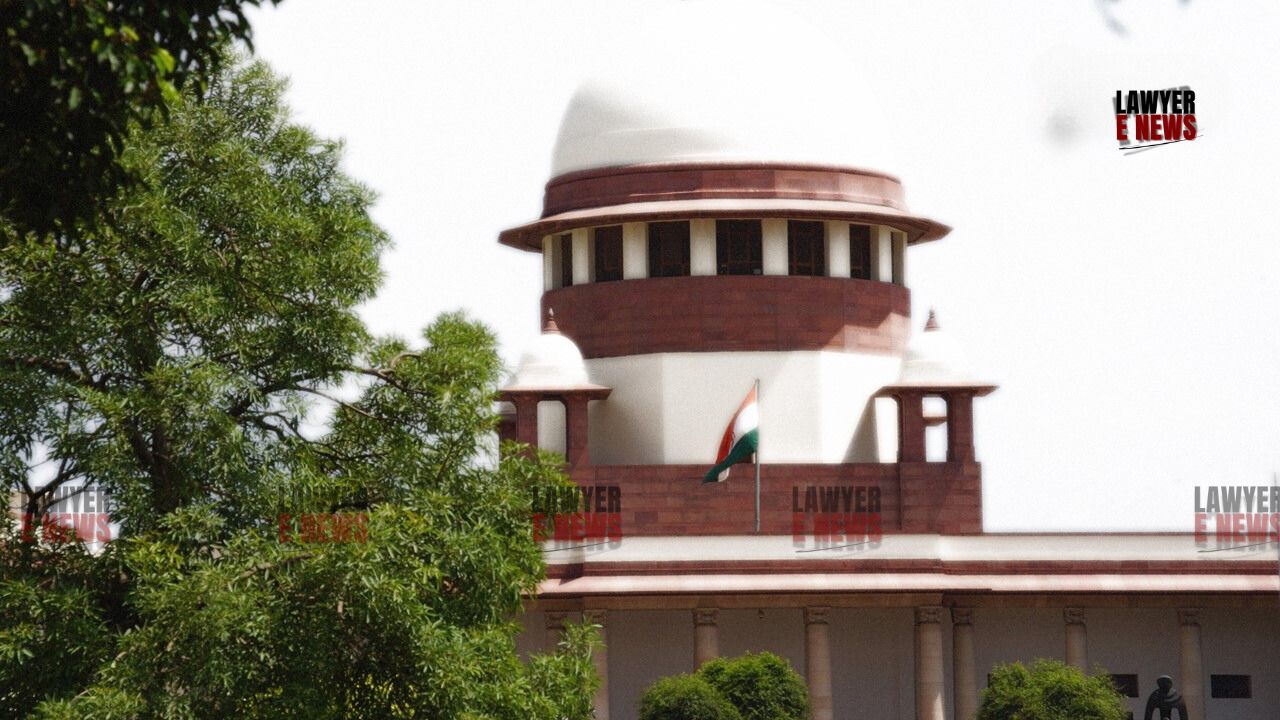-
by Admin
16 February 2026 5:45 AM



“The Purpose of Insurance Is Protection, Not Evasion of Liability”: Supreme Court Directs Full Claim Settlement with 9% Interest for Delayed Payment. In a strong rebuke to unfair insurance practices, the Supreme Court of India on February 7, 2025, ruled against National Insurance Company Ltd., holding it liable for arbitrarily rejecting a rightful insurance claim. The Court quashed the National Consumer Disputes Redressal Commission’s (NCDRC) order and restored the State Consumer Commission’s decision, directing the insurer to process and pay the claim within 60 days, along with 9% interest per annum from the date of the complaint until full payment.
A Bench comprising Justice B.V. Nagarathna and Justice Satish Chandra Sharma held that the insurance company’s denial of compensation was based on an irrelevant technicality and went against the fundamental principles of consumer protection. Expressing its disapproval of the insurer’s conduct, the Court observed: “An insurance policy is meant to provide relief to the policyholder in times of financial distress. It cannot be used as a shield to deny legitimate claims based on hyper-technical grounds. Such practices are arbitrary, unfair, and must be discouraged.”
The appellant, Binod Kumar Singh, owned a TATA truck that was insured with National Insurance Company Ltd. for a period from September 18, 2013, to September 17, 2014.
On June 8, 2014, the truck caught fire due to a short circuit while operating within Bihar and was completely destroyed. When the appellant filed an insurance claim, the insurer repudiated liability, citing that the truck’s national permit had lapsed due to non-payment of an authorization fee beyond October 14, 2013.
Challenging this decision, the appellant approached the Bihar State Consumer Disputes Redressal Commission, which ruled in his favor, directing the insurer to settle the claim on a non-standard basis. However, National Insurance appealed the decision before the NCDRC, which overturned the State Commission’s ruling in 2020, stating that a valid permit was a prerequisite for claim settlement.
The appellant then approached the Supreme Court, arguing that his permit was valid and that the insurance company’s refusal to settle the claim was wholly unjustified.
Supreme Court: “Denial of an Insurance Claim Cannot Be Based on Frivolous Grounds”
After reviewing the permit’s terms, the Supreme Court categorically rejected the insurer’s argument. The Bench observed that the truck had a valid national permit from October 14, 2012, to October 13, 2017, and that the authorization fee was only required for out-of-state travel. Since the accident occurred within Bihar, the fee had no bearing on the validity of the claim.
The Court strongly criticized the insurer’s approach, stating: “Technical lapses which have no nexus with the accident or the loss suffered by the policyholder cannot be grounds for claim repudiation. The insurer cannot use legal loopholes to escape its contractual liability.”
Referring to its earlier ruling in National Insurance Company v. Nitin Khandelwal, the Court reaffirmed that: “The primary duty of an insurer is to compensate the insured for actual losses. The rejection of a claim must be based on substantial grounds, not on procedural irregularities that do not contribute to the loss.”
Supreme Court Orders Claim Settlement with Interest for Unjustified Delay
Observing that the claim had been wrongfully denied since 2014, the Supreme Court set aside the NCDRC’s order and directed National Insurance to settle the claim within 60 days. Recognizing the financial strain caused by the insurer’s refusal, the Court further awarded 9% interest per annum on the claim amount from the date of the original complaint before the State Commission until actual payment.
Rebuking the insurer for forcing the appellant into prolonged litigation, the Court remarked: “An insurer that unfairly denies a rightful claim cannot be allowed to profit from its own wrongful conduct. The financial burden of litigation and delay must be borne by the party responsible for it.”
A Strong Warning Against Unfair Insurance Practices
This ruling reaffirms the Supreme Court’s commitment to protecting consumer rights and ensuring that insurers fulfill their contractual obligations in good faith. By categorically rejecting National Insurance Company’s reliance on technicalities, the Court has made it clear that insurance companies cannot evade liability on baseless pretexts.
By directing compensation with 9% interest, the judgment sends a strong message that delayed justice amounts to denied justice. The Supreme Court’s emphasis on the core objective of insurance—providing financial security rather than frustrating claimants with legal battles—sets an important precedent in consumer law.
As the insurance industry takes note of this landmark decision, the ruling stands as a warning that unfair claim repudiations will not be tolerated by the courts. The duty of an insurer is to provide relief, not create further hardships for policyholders.
Date of Decision: 07/02/2025
